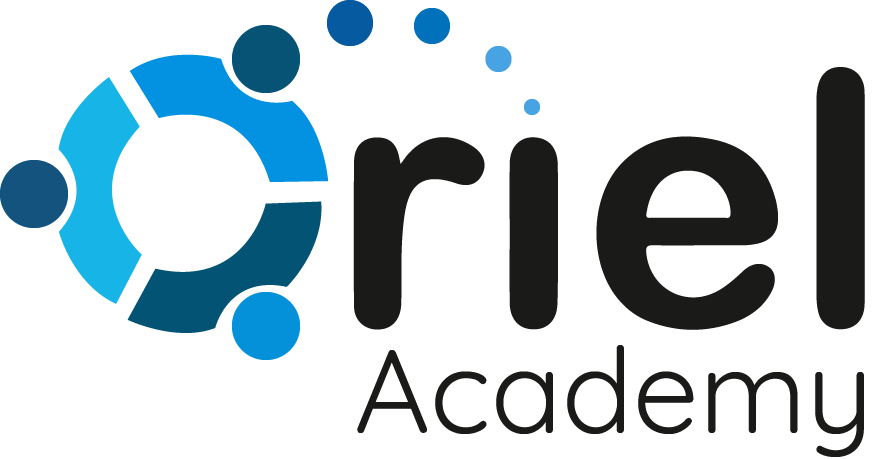At some point, each brand will have to deal with a social media crisis, and at that moment the stress could be overwhelming depending on whether it’s an unwitting posting, a major gaffe, or a public relations disaster that blows out of control. At a time when the word travels so fast, miscalculating a crisis may end up hurting your brand’s reputation. With Oriel Academy’s Media Training and Crisis Management Programmes, you can learn the best practices for managing a social media crisis without losing your composure and mind.
From planning to executing a calm, measured response, we’ll ensure that you’re ready for anything the digital world throws your way, as Media Training and Crisis Management are important parts of a brand’s communication armory.
1. Prepare in Advance: Create a Social Media Crisis Plan
The best way to handle a crisis is to prevent it, or at the very least be prepared for it. Developing a crisis management plan before the storm hits will make all the difference. A well-crafted crisis communication plan will give your team an idea of the steps you will be taking, so everyone knows what to do when anything goes wrong. Start by documenting your social media crisis management strategy. It should comprise
• Roles and Responsibilities: Determine key team members who lead the charge in terms of crisis, which can include PR, customer service, lawyers, or executives.
• Emergency Response Protocol: Create a flowchart or checklist that will determine the extent of the problem and how to respond.
• Templates for emergency messaging: The availability of pre-composed templates for most common crisis scenarios, such as a product recall, service outage, and public backlash, saves crucial time during a crisis. Therefore, planning and preparing templates prior is necessary.
A perfect plan doesn’t just solve the problem itself but also educates one on the way to communicate internally and to the outside world. Therefore, it proactively helps ensure everyone is on the same page and prevents knee-jerk reactions that may brew complications in a crisis.
2. Understand the Different Levels of a Social Media Crisis
Not every critical posting or furious customer is a full-blown crisis. Indeed, some issues may be too minor to cause any meaningful damage to your brand; others can cause lasting damage. It’s up to you to be able to evaluate the situation to understand what you need to do.
You might even use your own social media crisis scale, like the one Convince & Convert created, to classify issues by impact:
• Level 1: Minor complaints or queries—This can be addressed to customer service and requires more than just merely posting a prompt reply.
• Level 2: Angry customers or small-scale issues—These require a more detailed response and may need to be escalated to your PR team.
• Level 3: High volume of complaints or a service issue—Time to call in the big guns: senior management or PR specialists.
• Level 4: Major product recalls or service failures—any company response to apologize and effectively communicate the next steps.
• Level 5: Serious accidents, lawsuits, or legal issues At this level, your CEO or executive team must enter to issue formal statements and provide detailed responses.
It is by understanding what is considered a crisis, and promptly reacting, that over-reaction and under-reaction can be prevented while things get worse.
3. Respond Quickly and Consistently
Timing can then become particularly critical at the time of hitting a social media crisis, for a delayed response can worsen the situation, going on to convey a feeling of neglect whereby the issue spins out of control.
Here are some quick tips:
- Admit the Problem: You must at first admit that something is wrong. It shows to your reader that you are actively engaged in trying to correct the problem.
- Answer Fast: Ensure that complaints and questions are responded to within 30 minutes to an hour. If you’re a smaller company without a 24/7 team, be clear with your audience about when they will hear back from you.
- Consistent responses: Whether you are posting a public statement or an answer to direct messages, the responses shall be clear, constant, and aligned with your brand. Media training ensures that every individual who forms part of your team can effectively communicate.
Pro Tip: Put scheduled posts or promotional content on ice when the situation happens. You don’t want to look tone-deaf when your audience is at crisis level.
4. Use Social Listening to Stay Ahead of the Storm
The keys to successful crisis management are knowing and staying one step ahead of problems. Use social listening tools to keep track of mentions of your brand across social media. That way, you will identify trouble before it snowballs into a full-blown crisis.
- Keyword tracking: it is a process wherein you set up alerts for keywords relating to your brand, products, or industry.
- Sentiment Analysis Apart from the volume of mentions, an analysis of sentiments going around can help you gauge how people feel about your brand.
- Fix the Crisis Thresholds: Decide how many negative mentions per hour or day should occur before sending off your crisis plan. This way, you can know whether it is time to escalate or not.
5. Provide Transparency and Take Responsibility
If your company has goofed, then you have to admit your mistakes. You see, transparency breeds trust among audiences, and honesty goes a long way in clamming down anger.
- Be Frank: Honestly explain an incident without diverting attention from another’s mistake or downplaying the situation.
- Apologize Sincerely: While making a public apology or responding to individual complaints, make sure that your apology genuinely feels sincere.
- Explain what you’ll do next to ensure it doesn’t happen again: Let them know that you are actively doing something about the issue and will take steps to prevent its recurrence in the future. Having concrete next steps is a powerful way to be accountable.
In case of significant crises, you might need an official statement from your CEO or other senior leadership; this can also be an important way in which a company demonstrates that it’s seriously taking the issue while also showing the human side of your brand.
6. Train Your Team for Crisis Situations
Even if you have a crisis management plan in place, your team must undergo media training so that they come out in the most effective way possible if things go wrong. This media training should cover:
- Tone and Messaging: To ensure that your reaction is professional, whatever the situation is.
- Social Media Etiquette: Training employees on how to tread diplomatic ground in sensitive matters so that are not made worse, such as having no online arguments with customers.
- Escalation Procedures: What would this entail as far as involving senior leaders or escalating to the PR or legal teams?
Training should be continuous, and it is better prepared before the crisis of its arrival.
7. Monitor the Situation and Learn from It
After the crisis, analyze the situation and evaluate what has happened. Your post-crisis analysis can help you improve your response for the future and possibly avoid similar issues down the line.
Ask yourself:
- What went wrong? What could have been done differently?
- How did we react? Are the right people involved at the right time?
- What do we do better next time? Revise your crisis plan and update other training if it is needed.
You come to know what worked and what didn’t, which will help you to make your brand stronger and more resilient in the face of future challenges.
Stay Calm, Stay Prepared
Managing social media crises is not easy, but preparing effectively will keep you cool when managing them. A good Crisis Management plan, rapid response, and transparency can ensure that the team is prepared to face any type of crisis.
Surviving a crisis is not really about avoiding mistakes, but about managing the mistakes graciously and professionally. So remain calm and always hold on to your plan; your organization will get out of the storm quickly.
For more information on how to manage a social media crisis and how to prepare your team for anything, visit Oriel Academy. We provide custom media training and crisis communication planning to help you secure your online presence, no matter what.
____________________________________________
With advanced preparation and quick action, and with every experience serving as a school for learning, you will turn every crisis into an opportunity to strengthen your brand and deepen your relationship with your audience. Keep it strong, keep it strategic, and above all, keep it sane!


